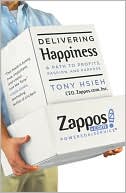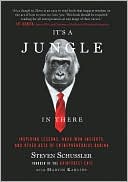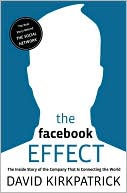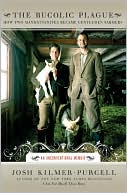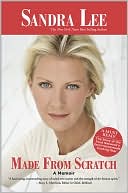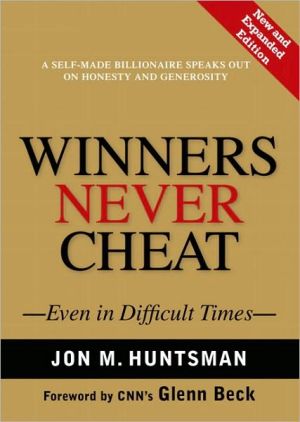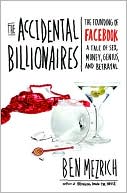The Jew Store: A Family Memoir
For a real bargain, while you're making a living, you should make also a life.—Aaron Bronson. In 1920, in small town America, the ubiquitous dry goods store—suits and coats, shoes and hats, work clothes and school clothes, yard goods and notions—was usually owned by Jews and often referred to as "the Jew store." That's how Stella Suberman's father's store, Bronson's Low-Priced Store, in Concordia, Tennessee, was known locally. The Bronsons were the first Jews to ever live in that tiny town...
Search in google:
The Bronsons were the first Jews to ever live in the small town of Concordia, Tennessee-a town consisting of one main street, one bank, one drugstore, one picture show, one feed and seed, one hardware store, one beauty parlor, one barber shop, one blacksmith, and many Christian churches. That didn't stop Aaron Bronson, a Russian immigrant, from moving his young family out of New York by horse and wagon and journeying to this remote corner of the South to open a small dry goods store, Bronson's Low-Priced Store. Never mind that he was greeted with "Danged if I ever heard tell of a Jew storekeeper afore." Never mind that all the townspeople were suspicious of any strangers. Never mind that the Klan actively discouraged the presence of outsiders. Aaron Bronson bravely established a business and proved in the process that his family could make a home, and a life, anywhere. With great fondness and a fine dry wit, Stella Suberman tells the story of her family in an account that Kirkus Reviews, in a starred review, described as "a gem...Vividly told and captivating in its humanity." Now available for the first time in paperback, here is the book that the Atlanta Journal-Constitution said was "forthright. . . . not a revisionist history of Jewish life in the small-town South but . . . written within the context of the 1920s, making it valuable history as well as a moving family story." Publishers Weekly In 1920, two years before the author was born, her family became the first Jews to live in the small town of Concordia, Tenn. Against the objections of his wife, Aaron Bronson, a Russian Jewish immigrant who had worked in dry goods stores in Savannah, Ga., and Nashville, started his own business by opening Bronson's Low-Priced Store in Concordia, which the locals called "the Jew store." In this richly detailed memoir, in which her father's optimism contrasts sharply with her mother's anxiety about their ability to provide their children with a Jewish education in their new surroundings, Suberman evokes early-20th-century life in the rural South and depicts her family's struggles to find a place in a town where African Americans suffered discrimination and poverty, the Ku Klux Klan was on the march and townspeople viewed Jews with suspicion. Suberman provides vivid characterizations of Concordia's residents, especially Brookie Simmons, who not only gave the Bronsons a home but fought to end child labor in the town's factory. In 1933, Aaron finally yielded to his wife's entreaties and moved with her and their three children back to New York City, even though they had come to regard Concordia as home.
SHE HAD SAID THE UNSAYABLE\ In my mother's mind the word Jew used all by itself, nakedly, as it were, was not a word but a curse. She believed it was used only by people who hated Jews. If it had its three letters—its "-ish"—on the end, ah, that made the difference. If I said that someone was a Jew, my mother would ask me, "So what is he? A no-goodnik? A gangster?"\ As I have understood it, my mother had come out on the porch at the very moment Miss Brookie had used the phrase "Jew store" on the telephone with Tom Dillon, before my father's meeting with Dillon. Miss Brookie used it as shorthand for the kind of business my father had in mind...but all my mother knew at that moment was that Miss Brookie had said the unsayable—had said "Jew store." — Stella Suberman, from The Jew Store
Prologue11The Destination52Avram Plotchnikoff's New Name163A Nice Jewish Girl254For Better or for Worse315God's (So to Speak) Country446Miss Brookie's Cousin Tom557Xenophobia618My Father's Fancy Footwork689Bronson's Low-Priced Store8210Green Eyeshades9011No Picnic10012Opening Day11213In Christ's Name, Amen12714A Gleam in My Mother's Eye13615Two Social Calls14316A House and Neighbors16117My Mother's Dilemma17418Seth's New Job18419New York Aunts19720The Bar Mitzvah Question21721Gentiles22622Joey's Homecoming23123Miriam's Romance23924Aunt Hannah's Wedding24725Concordia's Savior25626Miriam's Rescue27127Push Comes to Shove281
\ Publishers Weekly - Publisher's Weekly\ In 1920, two years before the author was born, her family became the first Jews to live in the small town of Concordia, Tenn. Against the objections of his wife, Aaron Bronson, a Russian Jewish immigrant who had worked in dry goods stores in Savannah, Ga., and Nashville, started his own business by opening Bronson's Low-Priced Store in Concordia, which the locals called "the Jew store." In this richly detailed memoir, in which her father's optimism contrasts sharply with her mother's anxiety about their ability to provide their children with a Jewish education in their new surroundings, Suberman evokes early-20th-century life in the rural South and depicts her family's struggles to find a place in a town where African Americans suffered discrimination and poverty, the Ku Klux Klan was on the march and townspeople viewed Jews with suspicion. Suberman provides vivid characterizations of Concordia's residents, especially Brookie Simmons, who not only gave the Bronsons a home but fought to end child labor in the town's factory. In 1933, Aaron finally yielded to his wife's entreaties and moved with her and their three children back to New York City, even though they had come to regard Concordia as home.\ \ \ \ \ Library JournalAfter retiring in 1995 as a publicist, Suberman returned for the first time to her birthplace, a small town in northwestern Tennessee. She decided to recount, using fictionalized names and places, her Jewish family's 11 years in that small town, from 1922 to 1933. The author's father, Aaron Bronson, a Jew orphaned from birth in pre-revolutionary Russia, immigrated to New York City. Eventually, he moved his family to rural Tennessee, where he opened up Bronson's Low-Priced Store. Since the Bronsons were the first Jews in town, residents referred to their business as the "Jew Store." Writing with a personal passion (with chapters on "The Bar Mitzvah Question" and "New York Aunts"), Suberman captures the trials her family faced and positive human relationships they formed while trying to adapt to an alien, closed, Southern Christian society. -- Charles C. Hay, Eastern Kentucky University Archives, Richmond\ \ \ School Library JournalYA-Russian immigrant Aaron Bronson took his wife and children from their enclave of New York Jews to a tiny Tennessee town where he set himself up as a successful storekeeper in the 1920s. The social, economic, and even spiritual experiences of the Bronson family are recounted by its youngest member, who evidently was a keen listener to family tales as well as an observer of events around her in early childhood. Nearly half of this autobiographical work predates Stella Ruth's birth and even when she appears on the stage, she is no scene-stealer. Her mother had to hide her ethnicity on her jobs in New York, and took years to assimilate to life in Tennessee. Joey and Miriam, the older children, dealt with the blunt questions asked by local children about their Jewishness with aplomb and made good friends. Mr. Bronson had to sell the insular town of Concordia on the idea that a "Jew store," a low-priced dry-goods store, was even needed and, being a "born sal-es-man," he succeeded in selling the idea and the goods as well. Suberman's fine writing and her ability to record tones and scents as well as images make this a lively and engaging story. Anti-Semitism is presented factually, as are the limitations of various townsfolk's penchant for doing good or evil. This will attract casual readers and serve as a useful auxiliary text in classrooms.-Francisca Goldsmith, Berkeley Public Library, CA\ \ \ \ \ Chicago TribuneSuberman tells her family's story with compassion and humor....authentic and postive.\ \ \ \ \ Chattanooga TimesAn utterly delightful book.\ \ \ \ \ Jewish Book NewsThe Jew Store is that rare thing an intimate story that sheds light on a piece of American History.\ \ \ \ \ Marisa Kantor StarkLike the story, which is practically a character in its own right, the people in The Jew Store linger in the mind. -- The New York Times Book Review\ \ \ \ \ Kirkus ReviewsIn this first book by a retired book reviewer for the Miami Herald, Suberman recounts the story of her family's sojourn as the only Jews in a rural Tennessee town in the 1920s. When Aaron and Reba Bronson arrived in Concordia, Tenn., (Suberman changed the town's name for the book) in 1920 to establish a dry-goods store, the hamlet had a population of 5,318 and the expectations of more to come when a new shoe factory was slated to open shortly after. Of those 5,318, almost all were God-fearing Christians of one denomination or another. The vast majority had never seen a Jew but "knew" that the Jews had horns and had killed Jesus. Yet the response of the town to the presence of the Bronsons turns out to be, for the vast majority, a bemused tolerance growing in many cases into outright love. When the Depression threatens the town, it is Aaron who proves to be the best "Christian" of them all, simply by being the most resourceful and caring of men. The Jew Store is as much a book about Jewish fear of Christian hostility as a story of overcoming anti-Semitism; Suberman is admirably frank about her mother's fears of the townspeople, which are no less destructive than the few manifestations of genuine hostility. The town is populated with the sort of colorful characters that a novelist dreams of creating, from the Northern-educated wealthy spinster agnostic who befriends the Bronsons to her overbearing, overweight, Klan-loving cousin, who is the local real estate magnate. The book is by turns charming, funny, and moving, artfully but simply written and invested with a warm glow of family love. An admirable debut by Suberman, vividly told and captivating in its humanity. \ \

